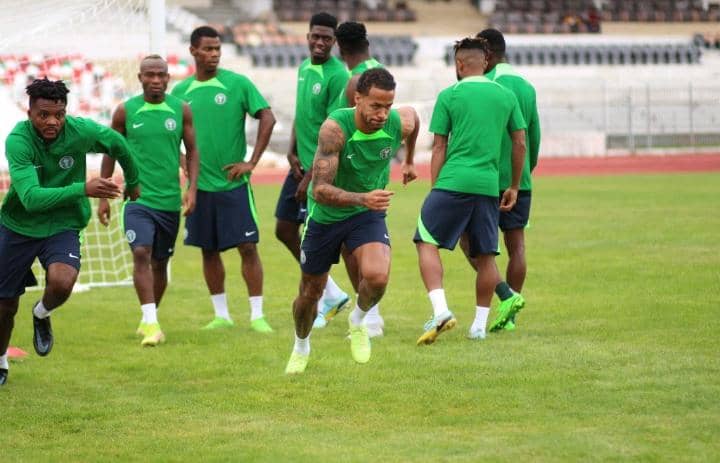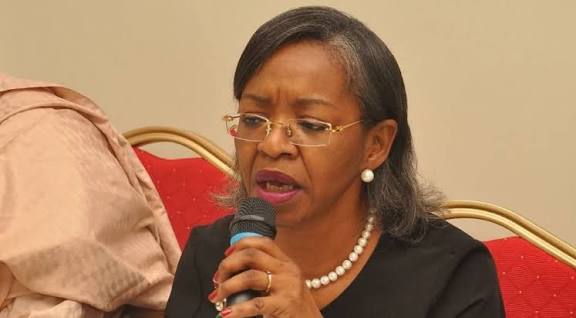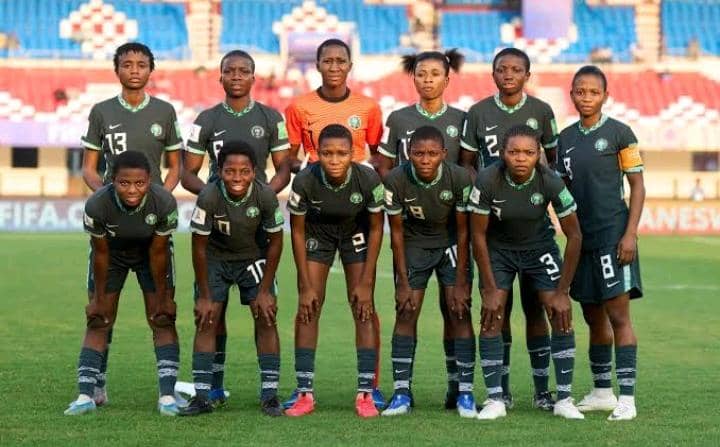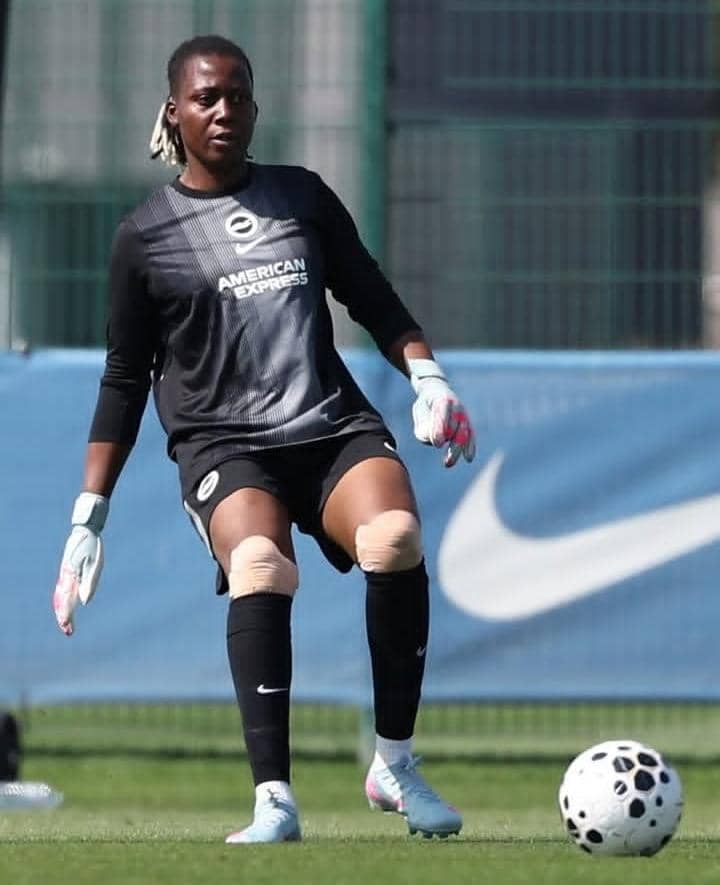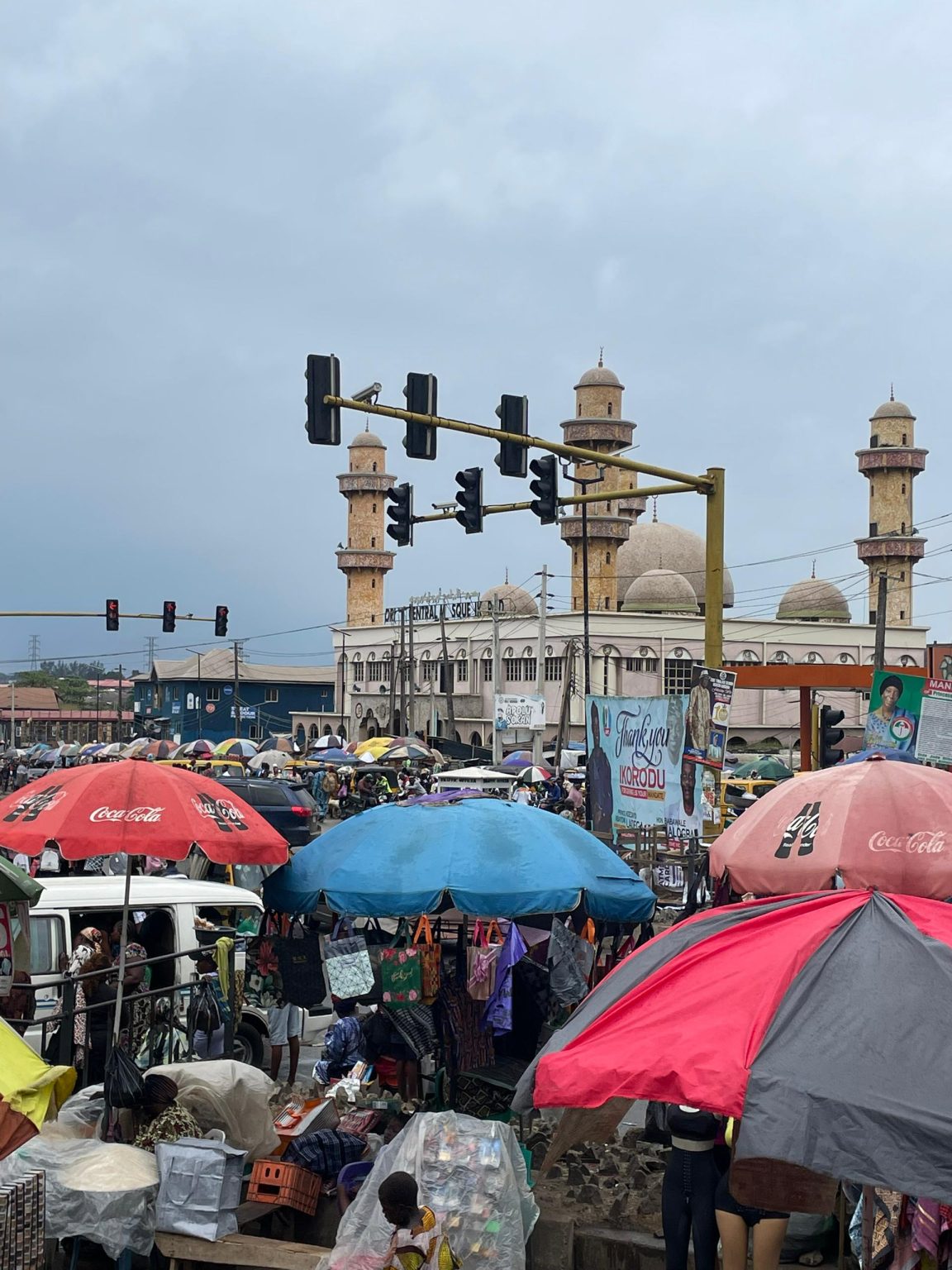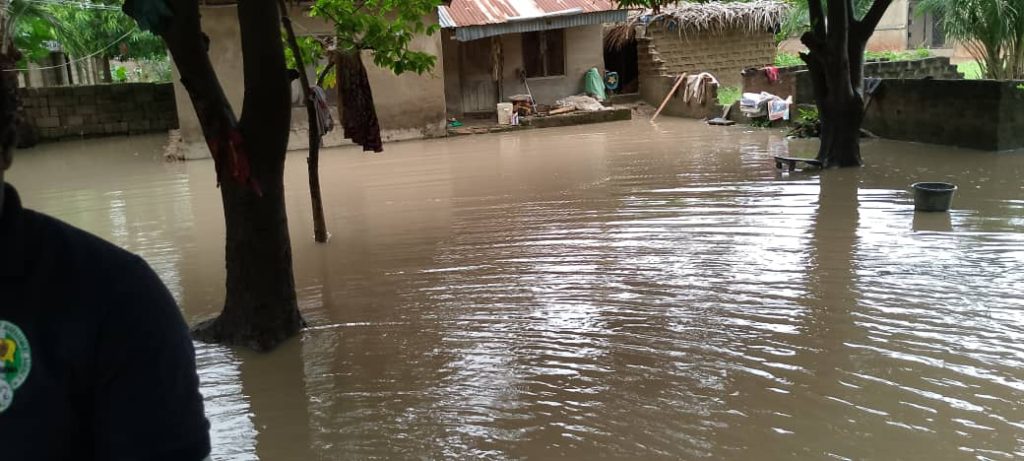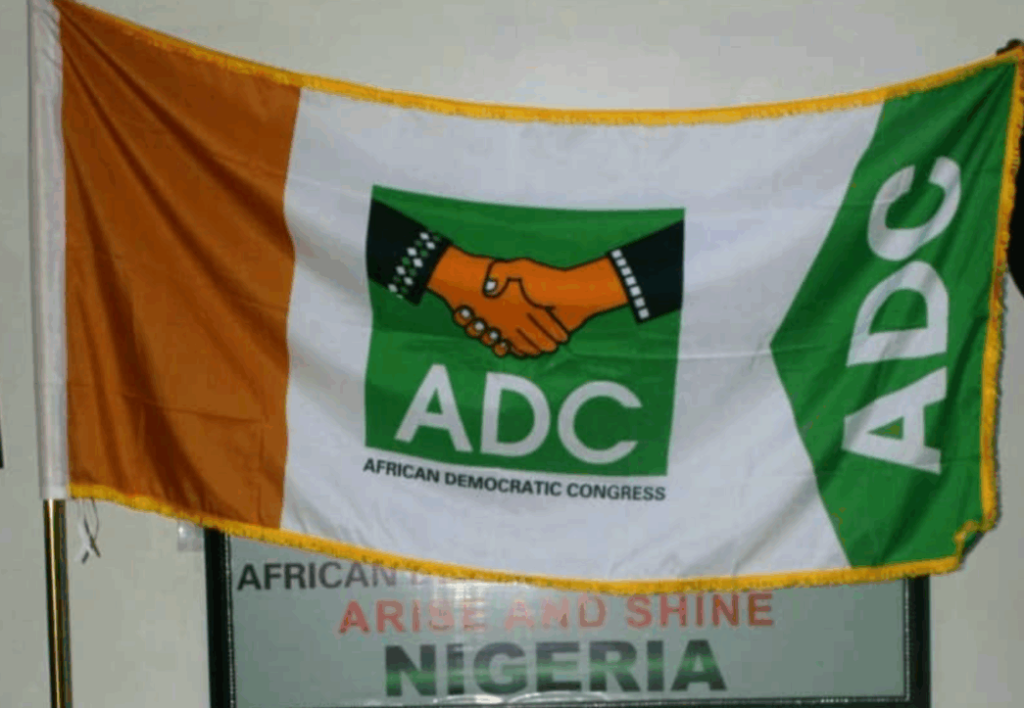By Ismaeel Aleem The Lagos State chapter of the All Progressives Congress (APC) has defended the ongoing demolition of illegal buildings. The party stated that no responsible government can overlook structures that imperil lives, hinder development, and undermine public safety. In a statement released on Tuesday, APC spokesperson Seye Oladejo underscored the necessity of enforcing urban planning laws to maintain order and safeguard residents in Nigeria’s bustling commercial hub. READ ALSO: Osun’s funds are not APC’s war chest, says Omoluabi progressives Oladejo clarified that the demolitions, which have sparked debate across Lagos, adhered to a transparent, law-driven process. “Multiple warnings and…
Author: New Daily Prime
By Boluwatife Kehinde Victor Osimhen and Ademola Lookman are among the notable players from the Super Eagles squad who have arrived in Polokwane, South Africa, as Nigeria intensifies its preparations for a crucial 2026 FIFA World Cup qualifier against Lesotho, scheduled for this Friday. Their arrival marks an essential step in the team’s journey as they aim to secure a spot in the upcoming World Cup. The players checked into their training camp on Tuesday, just one day after the technical crew and backroom staff had arrived to officially set up the team’s base. This early arrival is part of…
By Ismaeel Aleem May Agbamuche-Mbu assumed the role of Acting Chairman of the Independent National Electoral Commission (INEC) on Tuesday, following the completion of Professor Mahmood Yakubu’s decade-long tenure. As INEC’s longest-serving National Commissioner, her appointment represents a seamless transition amid ongoing electoral reforms. Originally from Delta State but born and raised in Kano, Agbamuche-Mbu embodies Nigeria’s cultural diversity. She attended the prestigious St. Louis Secondary School in Kano, renowned for nurturing influential women leaders. READ ALSO: Tinubu to present INEC chair successor at council of state meeting Thursday Her academic journey is equally distinguished. She earned an LLB in Law…
Boluwatife Kehinde Nigeria’s U-17 women’s team, the Flamingos, will leave Abuja in the early hours of Wednesday, October 8, to intensify preparations for the 2025 FIFA U-17 Women’s World Cup in Morocco. The first match against New Zealand is billed for October 10, while the encounter with Paraguay will follow on October 14. Both games are aimed at fine-tuning tactics and evaluating the team’s readiness ahead of the global showpiece. A statement from the Nigeria Football Federation (NFF) confirmed that the team, under the guidance of head coach Bankole Olowookere, will set up camp in Casablanca for their final training…
Boluwatife Kehinde Super Falcons goalkeeper Chiamaka Nnadozie is fast becoming one of the most talked-about names in English football after a sensational start to life at Brighton & Hove Albion. The 24-year-old has climbed to the top of the Women’s Super League (WSL) saves chart and earned a nomination for the PFA WSL Fans’ Player of the Month award for September. Since joining Brighton from Paris FC in the summer, Nnadozie has been a standout performer, recording 22 saves in five matches — more than any other goalkeeper in the league. Her nearest rivals, Leicester City’s Janina Leitzig (21 saves)…
By Fathia Idera Ikorodu, one of Lagos State’s major cities, lies to the north-east of the state capital along the Lagos Lagoon, sharing a boundary with Ogun State. With a population of more than one million people, it ranks as the twelfth largest city in Nigeria and the second largest local government area in Lagos State. Growing at an annual rate of about 5.26 per cent, Ikorodu is projected to reach 1.7 million residents by 2035, according to recent demographic estimates. Once a quiet stretch of farmland, Ikorodu has become a vibrant mix of commerce, culture and industry. The origin…
By Helen Okechukwu, Fatimah Idera It has been weeks of speculation, as former President Goodluck Jonathan once again finds himself at the centre of Nigeria’s political controversy, following several hints that he may throw his hat into the ring for the forthcoming 2027 presidential election. The most recent speculation came from the former Minister of Information and National Orientation, Prof. Jerry Gana, who recently declared that Jonathan, who held power between 2010 and 2015, will contest the 2027 presidential election on the platform of the Peoples Democratic Party (PDP). Prof. Gana expressed optimism about former President Goodluck Jonathan emerging as…
By Yunusa Umar The Federal Ministry of Environment has issued a fresh warning that heavy rainfall is expected to trigger flooding in 16 states between October 4 and 8, 2025. The alert was released by the National Flood Early Warning Centre on Saturday and signed by Usman Bokani, Director of the Erosion, Flood and Coastal Zone Management Department. According to the statement, the prediction covers 39 locations across 16 states, with residents in flood-prone communities urged to prepare for possible overflow of rivers, blocked drainage systems, and rising water levels. Mr. Bokani noted that the ministry’s monitoring systems had detected…
By Ismaeel Aleem The African Democratic Congress (ADC) has voiced profound alarm over the surge in political violence and insecurity gripping Kebbi State, urging federal and state authorities, alongside security agencies, to mount a swift, collaborative effort to reinstate peace and stability. Speaking at a press conference in Birnin Kebbi yesterday, following a stakeholders’ meeting, ADC leaders decried the “worsening security situation” and the alarming role of political thugs in fomenting unrest. Ibrahim Mohammed-Mera, a retired deputy comptroller-general of customs and prominent ADC figure, highlighted the gathering’s focus on these perils, condemning any politician’s complicity in such acts as “shameful.”…
Boluwatife Kehinde The Super Eagles’ technical team, helmed by head coach Eric Chelle, has officially arrived in Polokwane, South Africa, as preparations ramp up for Nigeria’s vital 2026 FIFA World Cup qualifying match against Lesotho, affectionately known as the Crocodiles. This encounter is set to unfold at the Peter Mokaba Stadium on Friday and is seen as a crucial juncture in the Super Eagles’ campaign, as they strive to secure all three points in an away fixture. Chelle and his coaching staff landed in Polokwane on Monday, alongside key support personnel, marking the start of an intense…



